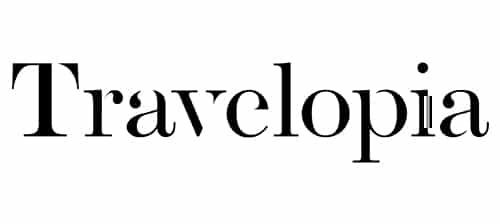Want to know more?
Are you interested in this project? Or do you have one just like it? Get in touch. We’d love to tell you more about it.

Travelopia partnered with Equal Experts to explore how GenAI could accelerate software delivery while maintaining rigorous engineering discipline. With rising internal interest in AI tools and Travelopia’s desire to stay ahead of emerging practices, our collaboration focused on transforming the delivery of a lead scoring and assignment platform using AI. The result was a production-ready system, built almost entirely with AI-generated code, but vitally grounded in the principles of responsible, sustainable engineering.
This case study explains how we moved beyond experimentation to build something real and production-grade — demonstrating that AI, when approached with discipline and software engineering best practices, can deliver measurable value without sacrificing maintainability and building unmanageable technical debt.

Travelopia is the home for brands that create extraordinary travel experiences. They are at the forefront of global travel for those wanting something distinctive. Travelopia’s focus is specialist travel experiences, such as yachting, safaris and luxury travel. Their brands are diverse and exciting, creating unforgettable experiences for customers across the world.
Before engaging Equal Experts, Travelopia had already spent more than a year exploring AI tooling. Motivated by a desire to improve developer productivity and gain a competitive advantage with AI-driven gains, Travelopia ran internal hackathons, tested tools like Cursor and GPT-3, and trialled code generation experiments. These activities surfaced several opportunities — but also highlighted the risks of adopting GenAI without structure.
Early concerns included:
Travelopia needed a way to make sense of their early AI experiments and begin identifying opportunities that could be scaled. Rather than focusing on broad transformation or one-off demos, they wanted to explore how AI could be integrated responsibly into a real production system — one that could showcase tangible business value while laying a foundation for repeatability. They partnered with Equal Experts to identify an ‘exemplar opportunity’ — a focused initiative that, if executed successfully and shown to deliver meaningful results, could serve as a compelling proof point for how AI might be scaled across the organisation.
For our exemplar opportunity, the teams selected a legacy system rewrite as an ideal candidate for GenAI adoption — specifically, a platform to score incoming leads and assign them to the right consultant.
Transformation doesn’t begin with grand strategies. It begins with careful foundations and disciplined delivery.
Our approach is designed to deliver gains and time to value faster, without piling up complexity and unmanageable technical debt — whilst keeping speed, quality and maintainability at the core. That’s why we use our three-phased approach to AI-powered software delivery:
With Travelopia, we saw an opportunity to move beyond Phase 1 experimentation and focus on Phase 2: building a real, production-grade AI-powered initiative. Our goal was not just to generate code faster, but to design and deliver something valuable, repeatable, and well-engineered – but with reduced time-to-value and cost-per-feature.
We selected a legacy system rewrite as an ideal candidate for GenAI adoption — specifically, a platform to score incoming leads and assign them to the right consultant. We designed and built a back-end-first system with a user interface for sales managers to manage consultants and oversee lead lifecycles, with integrations to existing CRM and communication tools. The engagement focused on hands-on delivery while embedding the practices that would support long-term GenAI adoption.
Despite generating the vast majority of implementation code with LLMs, we rejected the trend of “vibe coding.” Instead, we applied:
By treating AI as a “design and implementation partner” — not an autonomous implementer— the team maintained full control over the system’s design integrity.
While stakeholder interest naturally gravitated toward the user interface, we prioritised building the system’s core first, that consisted of:
This allowed the UI to evolve rapidly once the core system was in place — a classic payoff of strong architectural foundations.
Despite generating 99% of our code using LLMs, we didn’t just ‘vibe’ our way through it. We discovered that the quality of AI-generated code directly correlated with the quality of our engineering practices.
Travelopia’s experience demonstrates that AI-powered software delivery, when grounded in engineering best practice, can deliver tangible benefits:
With a successful pilot under their belt, Travelopia has now gone live with the software and is actively planning for larger AI adoption. The initiative has triggered internal conversations about:
Leaders see GenAI not as a short-term boost, but as the next logical step in software delivery evolution. In the next 12–18 months, Travelopia expects significant organisational change — including wider use of GenAI, integration into new projects, and embedding AI practices across delivery teams.
Our engagement has shown that transformation doesn’t begin with grand strategies. It begins with careful foundations and disciplined delivery.
This wasn’t just about proving AI could help us move faster. It showed us a new way to deliver — one that combines AI with engineering discipline to achieve real impact. We’re now in a much better position to scale GenAI practices across our teams.
Travelopia’s journey shows that AI doesn’t eliminate the need for good engineering — it magnifies it. The best results came not from asking AI to replace developers, but from pairing LLMs with structured practices, strong architecture, and human oversight.
With the right foundations, AI became a force multiplier — not a risk factor. Our partnership with Travelopia shows how disciplined AI delivery can unlock real business value while preparing for broader transformation.
Are you interested in this project? Or do you have one just like it? Get in touch. We’d love to tell you more about it.